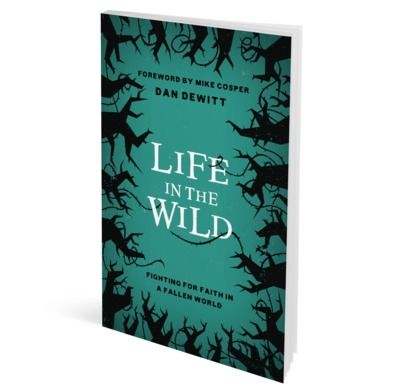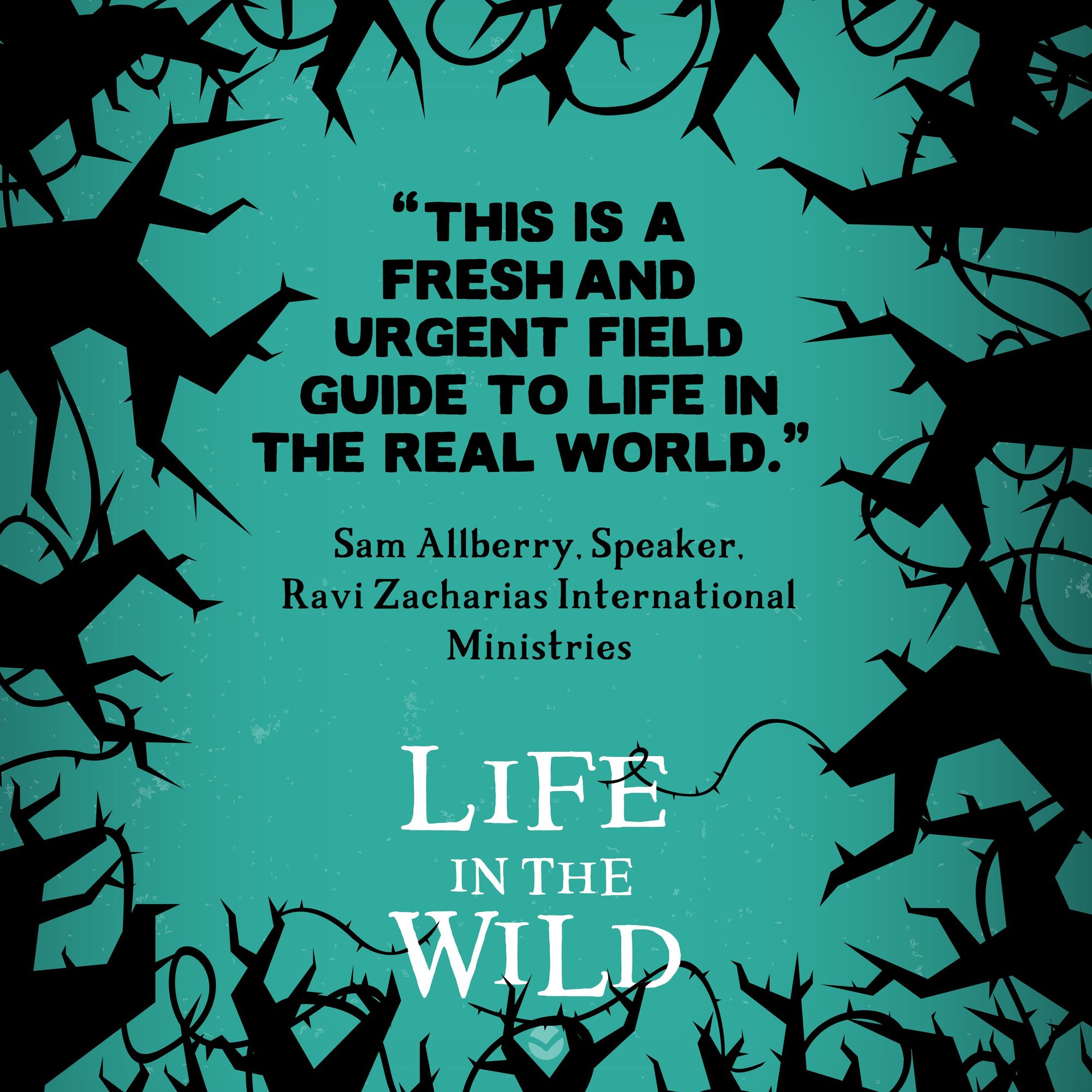“We Need to Fight for Faith in a Fallen World”: An Interview with Dan DeWitt


Life in the Wild is a refreshing little book from new author Dan DeWitt, Associate Professor of Apologetics & Applied Theology at Cedarville University, Ohio & Director of the Center for Biblical Apologetics & Public Christianity – but please don’t let that long title put you off! The bottom line is that DeWitt is a shrewd observer of life, a riveting Bible teacher, and a really good writer; he is both funny and creative, and in LITW he has crafted a compelling companion for living as Christians in this broken world.
That’s what the title is getting at: ‘the wild’ is his way of describing the realities of life here-and-now, full of the joys and sorrows of a good world marred with suffering and sin. DeWitt seeks to make sense of why the world is the way it is, and shows just how important it is that we go through life with our eyes open.
And yet DeWitt also manages to steer clear of cliche and well-worn descriptions; the book is littered with delightful illustration and a turn of phrase that really captures and brings home biblical truth. There’s similarities in style and aim to C.S. Lewis, N.D.Wilson and Andrew Wilson, but to be honest, there’s not many books quite like this.
All this means I was really glad when Dan DeWitt agreed to let me ask him some questions about his vision for the book and for why he’s written it…
Q. Dan, in Life in the Wild you speak of the need for Christians to look at this world with both realism and hope. Can you give us a snapshot of what led you to write this book?
A. I gave a talk to a group of college students, mostly from a local secular university, several years ago in which I was asked to speak on the problem of evil. I really didn’t want to do a philosophical discussion of the issue, though there are some really powerful philosophical arguments in favor of the Christian worldview. Rather, I wanted to simply read the first few chapters of Genesis and ask the question, “If this account is true (as a Christian I of course believe it is) then what should we expect the world to look like?” I outline seven effects of the fall that I think flow naturally from the text. Over the years I’ve returned to those seven effects of the fall from Genesis 3 many times in helping Christians think through pain and suffering and evil in the world.
Q. Sam Allberry described the book warmly as a “fresh and urgent field guide to life in the real world”. Is that what you were hoping for as you wrote it?
A. Absolutely. I hope that it is a helpful to resource to use the Bible as a way to understand our suffering in a fallen world. We need to inform both our grief and our hope by what the Bible has to say about life in the wild.
Q. The early chapters of Genesis are perhaps sometimes known simply as being a source of controversy amongst Christians. So to some it might seem odd to spend a whole book camped out in one of those chapters, Genesis 3. Why did you choose to do that?
A. I wanted to focus on the big picture of Genesis and not some of the controversies about issues related to the age of the earth or something like that. I think the primary purpose of every creation passage in the Bible is to demonstrate authorship and ownership. God is the creator, owner, and sustainer of all. Our rejection of his authorship and ownership is the reason that we are living in a fallen world. Understanding the effects of our rebellion, our sin, is what my book is about.

Q. In what ways do you think the church has misrepresented the challenge of living in a fallen world?A. I think we see a religious misrepresentation of living in a fallen world anytime tele-evangelists talk as though faithful Christians won’t face suffering, illness, or financial distress. You have to wonder if the kind of people who say such things have ever read the Bible. The Bible is a book of suffering, from Gen. 3 to the end of Revelation. But I also think well-meaning, Bible-believing, church-attending, Christians can sometimes misrepresent this unintentionally by a lack of transparency in community. When people think we never have a bad day, are never tempted, are never depressed, are never fearful, et cetera, then we can give a rather skewed picture of the Christian life. Obviously we don’t want to air all of our dirty laundry every chance we can get, but there needs to be a way in which those around us see us wrestling to live out our hope in Jesus even when things go badly.
Q. How might the message of Life in the Wild help us as we think evangelistically about engaging our neighbors and the culture around us with the gospel?
A. For starters I think it should make us a whole lot more empathetic. We are all broken people living in a broken world. Secondly, I hope it serves as an encouragement to look for ways to help one another. In our service we may win the opportunity to point others to the source of hope we have found in the wild. Lastly, I hope that understanding the robust explanation of evil and suffering from Genesis can provide a biblical apologetic in conversations where people are trying to figure out why bad things happen to good people and good things happen to bad people.
Q. You’re involved in training people for Christian ministry. Why do you think it’s important for pastors to help Christians have an understanding of ‘the wild’ and where we are in God’s story? Any wisdom for those in pastoral ministry on helping people in this area?
A. I think we need to remind ourselves of the big story of the Bible often. When we look at the the big picture that God has a design for our world, we’ve fallen from this design, flourishing is found in pursuing this design, and one day God will return to restore his design. We see the opening and closing acts of human history in the Bible with creation and then the Lord’s return. We are living between divine acts, waiting in the wild for God’s design to be restored. That means the needs for Christian ministry are massive. We are broken people living in a broken world. But the resources for the believer are greater still, God provides grace to meet our needs as we wait for him to make all things new. It doesn’t make things easy, we still grieve, but we grieve with hope.
You can pick up a copy of Life in the Wild from the publisher here.Full disclosure: The publisher sent me a free copy of this book, but I hope this is still a fair and honest review.